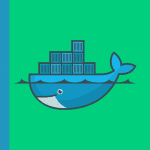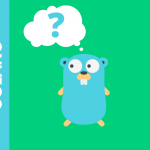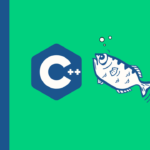Programming is a skill that enables us to create software, solve problems, and build applications. For beginners, understanding the fundamental concepts of programming is crucial as they form the foundation for writing efficient and functional code. Whether you're learning Python, Java, or any other language, these core principles remain the same.
In this article, we’ll explore the essential programming concepts with examples in Python.
1. Variables and Data Types
Variables are containers for storing data values. They allow you to label and manipulate data during program execution. Each variable has a data type that determines the kind of values it can hold.
Example:
# Variable declaration
name = "Alice" # String
age = 30 # Integer
is_student = True # Boolean
height = 5.5 # Float
print(f"Name: {name}, Age: {age}, Student: {is_student}, Height: {height}")
Key Takeaway: Choose meaningful names for variables, and understand data types such as integers, strings, floats, and booleans.
2. Basic Syntax
Syntax refers to the set of rules that define how code is written. Python, for example, relies on indentation to structure code, unlike languages that use braces.
Example:
# Python syntax example
print("Hello, World!") # Prints a message
if True:
print("This is indented correctly.")
Tip: Learn and follow the syntax rules of the language you’re working with to avoid errors.
3. Flow Control Structures
Flow control structures help direct the execution of code based on conditions or iterations.
Conditional Statements
score = 85
if score >= 90:
print("Grade: A")
elif score >= 75:
print("Grade: B")
else:
print("Grade: C")
Loops
Loops are used for repetitive tasks. Python supports for and while loops.
# For loop example
for i in range(5):
print(f"Iteration {i+1}")
Key Takeaway: Use conditional statements to make decisions and loops to handle repetitive tasks efficiently.
4. Functions
Functions are reusable blocks of code designed to perform specific tasks. They improve code modularity and reduce redundancy.
Example:
def greet(name):
return f"Hello, {name}!"
print(greet("Alice"))
Tip: Keep your functions small and focused on a single task for better maintainability.
5. Data Structures
Data structures are ways of organizing and storing data. Common examples include lists, tuples, dictionaries, and sets in Python.
Example:
# List
fruits = ["Apple", "Banana", "Cherry"]
# Dictionary
person = {"name": "Alice", "age": 30}
# Tuple
coordinates = (10, 20)
print(fruits, person, coordinates)
Key Takeaway: Use the appropriate data structure for your needs to improve efficiency and performance.
6. Object-Oriented Programming (OOP)
OOP focuses on using objects and classes to organize code. It introduces principles like inheritance, encapsulation, polymorphism, and abstraction.
Example:
class Car:
def __init__(self, make, model):
self.make = make
self.model = model
def display_info(self):
return f"{self.make} {self.model}"
car = Car("Toyota", "Corolla")
print(car.display_info())
Tip: Learn the principles of OOP to build scalable and maintainable applications.
7. Debugging
Debugging is the process of identifying and fixing errors in code. Tools like print statements, Python’s pdb module, or IDEs with debugging features can make this process easier.
Example:
def divide(a, b):
if b == 0:
print("Error: Division by zero is not allowed.")
return None
return a / b
print(divide(10, 0)) # Debugging with a print statement
Tip: Always test your code and anticipate edge cases to minimize bugs.
8. Integrated Development Environments (IDEs)
An IDE simplifies coding with features like autocomplete, debugging, and syntax highlighting. Popular IDEs include:
- VS Code: Lightweight and versatile.
- PyCharm: Great for Python development.
- Jupyter Notebook: Ideal for data science projects.
Frequently Asked Questions (FAQs)
1. What are the basic concepts of programming?
The basic concepts of programming include variables, data types, flow control structures (if-else, loops), functions, data structures, object-oriented programming, and debugging techniques.
2. Why are programming fundamentals important?
Understanding programming fundamentals provides a strong foundation for tackling more advanced topics and creating efficient, error-free programs.
3. Which programming language is best for beginners?
Python is an excellent choice for beginners due to its readability, simple syntax, and vast resources.
4. How do I debug my code effectively?
Use debugging tools like Python's pdb, IDEs with debugging features, or print statements to identify and fix errors.
5. What is the difference between lists and tuples in Python?
Lists are mutable (modifiable), while tuples are immutable (cannot be changed after creation).
6. What is object-oriented programming?
Object-oriented programming (OOP) is a paradigm that uses objects and classes to organize and manage code. It emphasizes principles like encapsulation, inheritance, and polymorphism.
7. How can I start learning programming?
Start with a beginner-friendly language like Python, practice coding daily, and work on small projects to strengthen your skills.
Conclusion
Mastering the fundamental concepts of programming is essential for any aspiring developer. By understanding variables, syntax, flow control, functions, data structures, OOP, and debugging techniques, you'll be well-equipped to tackle complex programming challenges.





